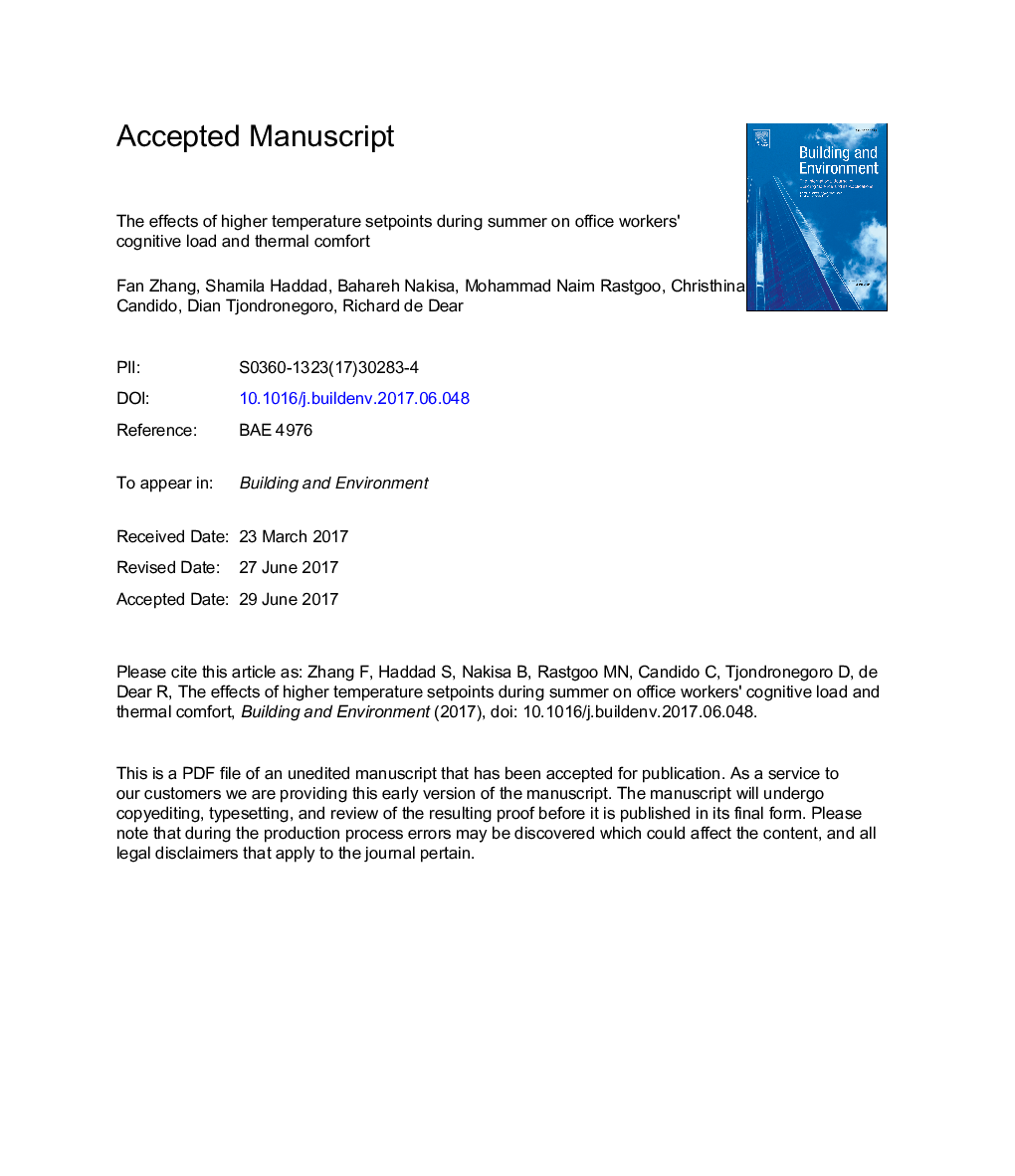| کد مقاله | کد نشریه | سال انتشار | مقاله انگلیسی | نسخه تمام متن |
|---|---|---|---|---|
| 4917255 | 1428369 | 2017 | 28 صفحه PDF | دانلود رایگان |
عنوان انگلیسی مقاله ISI
The effects of higher temperature setpoints during summer on office workers' cognitive load and thermal comfort
ترجمه فارسی عنوان
اثرات تنظیمات دمای بالاتر در تابستان بر بار شناختی کارکنان اداری و راحتی حرارتی
دانلود مقاله + سفارش ترجمه
دانلود مقاله ISI انگلیسی
رایگان برای ایرانیان
کلمات کلیدی
تنظیمات درجه حرارت بالاتر، تهویه مطبوع، بار شناختی راحتی حرارتی،
موضوعات مرتبط
مهندسی و علوم پایه
مهندسی انرژی
انرژی های تجدید پذیر، توسعه پایدار و محیط زیست
چکیده انگلیسی
Typical commercial lease agreements in Australia stipulate 22.5 ± 1.5 °C in summer as the acceptable thermal condition that buildings have to meet, even though the overcooling incurs excessive and unnecessary energy use, gas emissions and financial expense. An argument that backs up this practice asserts that office workers' productivity and comfort will be jeopardised outside this temperature range. This paper investigated whether the office environments with a practical higher temperature setpoint can still be cognitively efficient and comfortable for office workers. In a controlled climate chamber, 26 office workers experienced the typical summer indoor temperature condition in Australia (22 °C) followed by the condition with a higher temperature setpoint (25 °C). In both conditions, subjects were required to fulfil Cambridge Brain Science (CBS) cognitive performance tests, NASA Task Load Index (NASA-TLX), and thermal comfort and air quality questionnaires. Meanwhile, participants' electroencephalogram (EEG) and heart rate (HR) were recorded under three different difficulty levels of Paced Auditory Serial Addition Tests (PASAT). Results showed that CBS test scores were not significantly affected by temperature; a higher temperature of 25 °C incurred a significantly reduced cognitive load for subjects, as has been observed by NASA-TLX, but probably due to the learning effect; the comparison between EEG and HR features during different temperatures did not show any significant difference. Participants' thermal comfort was not significantly jeopardized by the 3 °C temperature setback either. Results from this study favourably support a practical setback of temperature setpoints in Australian office buildings during summer.
ناشر
Database: Elsevier - ScienceDirect (ساینس دایرکت)
Journal: Building and Environment - Volume 123, October 2017, Pages 176-188
Journal: Building and Environment - Volume 123, October 2017, Pages 176-188
نویسندگان
Fan Zhang, Shamila Haddad, Bahareh Nakisa, Mohammad Naim Rastgoo, Christhina Candido, Dian Tjondronegoro, Richard de Dear,
